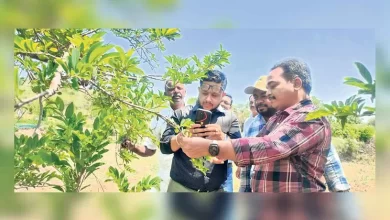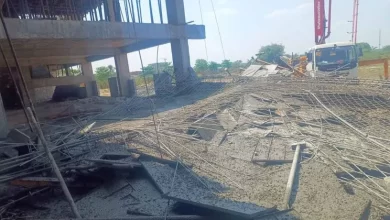BRS-era industrial policy bears fruit; companies on recruitment mode now
With a forward-looking industrial policy and strategic land allocations across specially developed industrial parks, the State had emerged as a magnet for investment and a hub of job creation during the BRS era
Hyderabad: The Telangana model of industrial development, envisaged by the previous BRS government under former Chief Minister K Chandrashekhar Rao, continues to yield remarkable results. Notwithstanding the adverse conditions currently prevailing in the State, companies like KITEX group that grounded works during the BRS regime, are now commencing operations and providing jobs to numerous locals.
With a forward-looking industrial policy and strategic land allocations across specially developed industrial parks, the State had emerged as a magnet for investment and a hub of job creation during the BRS era.
One of the most notable outcomes of this policy framework was the entry of KITEX Group, the world’s second-largest manufacturer of children wear. KITEX signed an MoU with the Telangana government in July 2021 and is now executing two major projects in Warangal and Hyderabad. Thanks to the sustained efforts of former IT and Industries Minister KT Rama Rao, KITEX is investing Rs.3,000 crore in Telangana, with its units now entering the recruitment phase.
KITEX has commenced mass recruitment drives and plans to provide direct employment to 25,000 people – a substantial boost to the State’s job market. The first phase of hiring is focused on Warangal, where a state-of-the-art facility is under construction within the Kakatiya Mega Textile Park (KMTP). This park, developed with modern infrastructure and strategic location advantages, is a flagship example of the BRS government’s industrial vision.
Warangal, in particular, has emerged as a rising industrial hub, with the textile and manufacturing sectors thriving due to assured infrastructure, land availability, and investor-friendly governance. The BRS government’s strategy of decentralising industrial growth from Hyderabad to tier-II cities like Warangal has also paid off, enabling balanced regional development. Through the TS-iPASS, a total of 1,825 major industrial units have been established in erstwhile Warangal district alone, attracting an impressive investment of nearly Rs.5,960 crore and resulted in the employment of 18,366 individuals.
Between 2014 and 2023, the BRS government pioneered the TS-iPASS single-window clearance system and adopted a proactive approach to land allocation, industrial park development, and investor outreach. The Telangana State Industrial Infrastructure Corporation (TSIIC), which is now TGIIC, developed 162 industrial parks over 10 years, creating the infrastructure backbone necessary for industrial growth.
These parks are spread across various districts, including Hyderabad, Rangareddy, Warangal, and Sangareddy, and have allocated 38,458 acres for establishment of thousands of MSMEs and large-scale industries. Over the past few years, Telangana has attracted over Rs 3 lakh crore in investments and created more than 15 lakh jobs, according to state government data including attracting investments worth Rs.63,125 crore and creating 2.63 lakh jobs in industrial parks alone.








